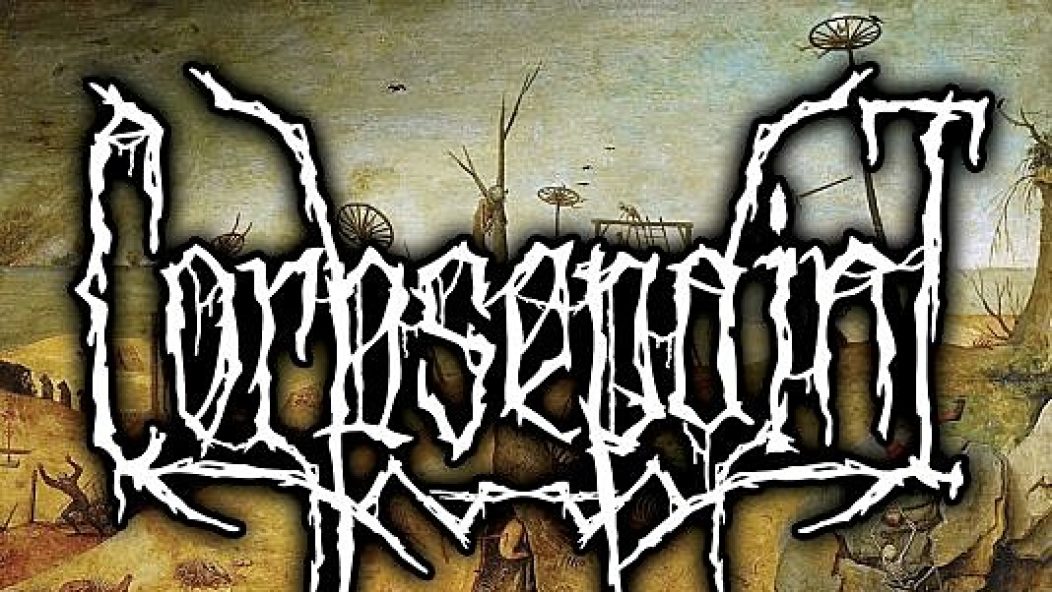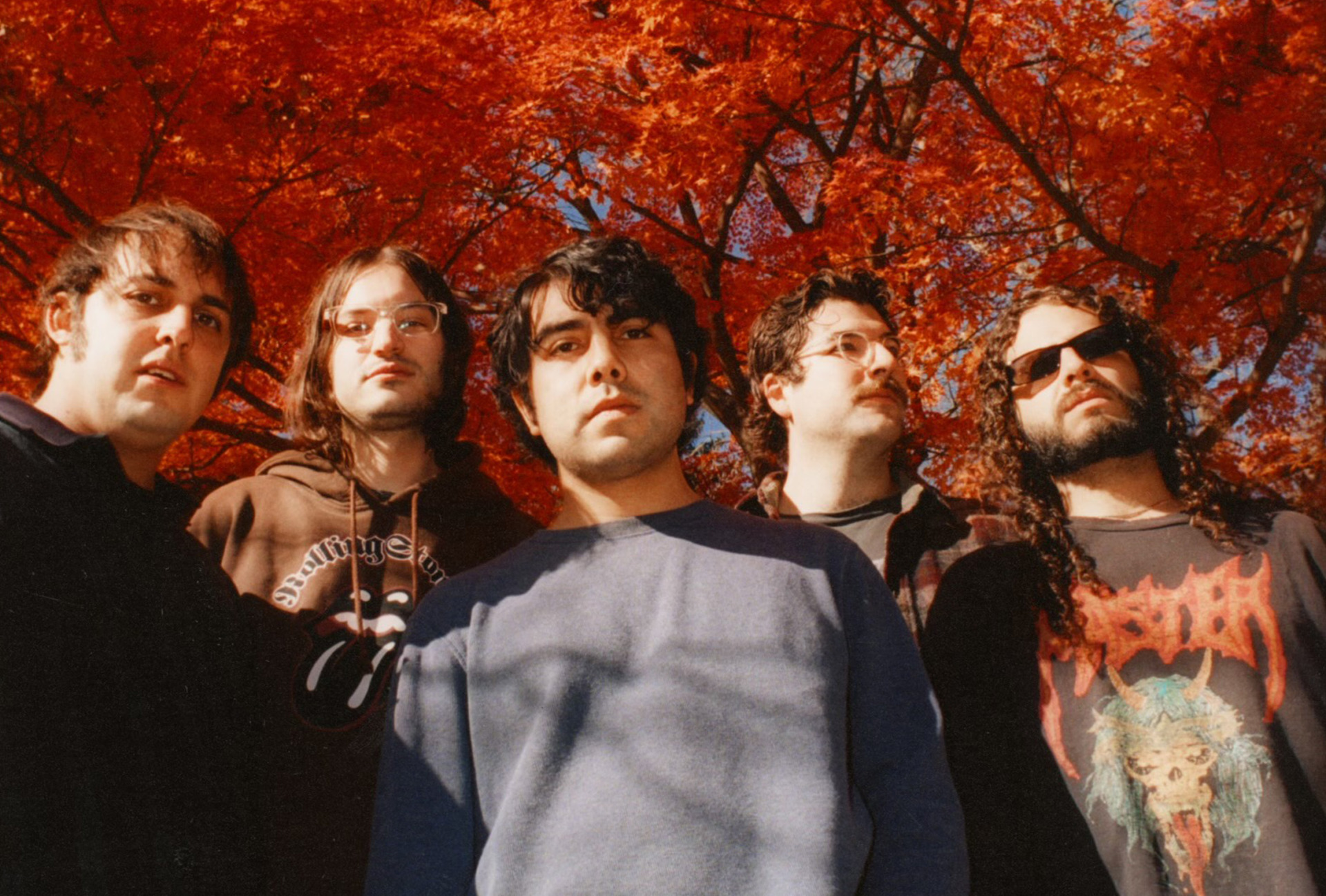
"Corpsepaint" Artfully Blends Horror, Metal, and Fiction Writing
…
Heavy metal and horror have always been inextricably linked. Both, on some level, are designed to elicit a physical response, invoking aggression or fear, flight or fight — and at their best, they will hopefully stimulate a mental response. Sometimes though, the love affair between them hasn’t always felt like a two-way street. Sure, there is no lack of brash and atavistic metal out there, but there is also a rich legacy of thoughtful and nuanced metal as well. The problem is metalheads are often portrayed in books and movies as idiots, the worst stereotypes drawn from Bill and Ted’s Excellent Adventure, Spinal Tap, or Wayne’s World. Metal-based horror movies such as Trick or Treat or The Gate, as fun as they might be, don’t portray the genre in a much better light. Most media treats metal as something to be parodied, not an artform that grapples with some of humanity’s most difficult and existential questions. Consider the imbalance at least partially addressed in David Peak’s excellent new novel “Corpsepaint.”
“Corpsepaint” tells the story of Max, a.k.a. Strigoi, the sole mastermind behind a legendary American black metal band Angelus Mortis, who at the behest of his record label is attempting to return the act to its former glory. After releasing three classic albums 25 years ago, the band has been a trainwreck of drug addiction and unhinged behavior, and Max hasn’t been able to keep his act together long enough to reach the level of quality Angelus Mortis was known for. Now with Roland, his latest sideman in tow, he is off to the Ukraine to write and record a new masterpiece under the watchful eye of the mysterious black metal group Wisdom of Silenus, led by the charismatic Seph. Once they arrive, they encounter a world where the fantasy of black metal invades reality and they encounter horrors beyond description.
David Peak succeeds where so many have failed. Max and Roland, along with the Ukrainian crew, are well-constructed characters. They are deeply flawed, and like the best noir novels, no one is even close to innocent. But the reader is drawn along, fascinated by their flaws. For those who follow black metal, Max and Roland come from the camp of self-destruction and glorified addiction, the type whose every album is treated like a miracle because no one thought they would live long enough to write it.
The Wisdom of Silenus characters also have their analogue in the real world, representing the far-right black metal scene. Rather than engaging in the type of addictive behaviors represented by Max and Roland, Wisdom of Silenus and many of their followers engage in rigid self-discipline in order to one day achieve their ends. They are the wide-eyed believers and are willing to go to extreme ends to fulfill their own agenda. When their world meets the feral depravity of Max and Roland, a culture clash emerges to say the least.
These characters represent a critique of the black metal itself. The scene has always been populated by artists who have worn their flaws on their sleeves, and if recent events seem to show anything, there are even more problematic issues not far beneath the surface. But all of this, for some at least, is all part of the allure.
As an examination and interrogation of the internal workings of the black metal scene, “Corpsepaint” makes for a great read, but this is also a horror novel, and the author shows an equally deft approach to this aspect as well. This is not a slasher novel, nor is gore and visceral terror the primary focus. “Corpsepaint” falls well into the revival of the weird fiction genre that has come to the forefront in recent years. Peak walks a tightrope between the cosmic horror of H.P. Lovecraft and the more subtle machinations of Robert Aickman. Much of the menace throughout the novel is subtle, more ominous than visceral. It isn’t until the final quarter of the story that the reader is confronted with much more immediate and fantastic dangers, but by this point, the sense of menace has already been pushed to the breaking point.
Working hand-in-hand with “Corpsepaint,” David Peak released a nonfiction book last year called “The Spectacle of the Void,” a work that examines the “Horror Reality” that has taken a hold of the real world, and how this is reflected in the horror we consume as entertainment. We seek to observe the pain and suffering inflicted upon others to affirm our own existence, and to try to understand our own mortality, even if such an understanding is ultimately out of reach. While it is not necessary to read this to enjoy “Corpsepaint,” it certainly can be illuminating.
One of Peak’s main contentions is the idea that horror no longer draws from the resurfacing of ancient evils to terrorize the innocent of the present, but that the present provides the horror itself. Make no mistake, there is an ancient evil stirring in “Corpsepaint,” but it is the actions of the characters in this book which fuel the fires that burn down the world. Looking at our own world, we can see how history weaves together to feed the crises we see unfolding before our very eyes.
The immanent extinction of mankind is a concept we are all being forced to grapple with, whether consciously or not, both in works of fiction and our daily lives. The idea of the end of humanity may seem like a fictional trope, but we are coming to see this as a real possibility. If cosmic horror often draws its power from the realization of mankind’s insignificance in the universe, a world wiped clean of our presence must surely be the ultimate realization of this theme.
While Max and Roland lash out at this knowledge with self-destructive behavior, the Ukrainian Wisdom of Silenus embraces the coming apocalypse, but with the false notion they will be elevated above the carrion fate of the rest of humanity. Both of these reactions to both our personal mortality and the fate of Western civilization have their analogues in the real world. Ultimately though, Peak seems to be showing the futility of all these approaches. The hands of the clock are too near to midnight, there is nothing that can be done to turn them back.
The novel opens bleak and grows ever darker as the plot progresses. The characters and tone begin with a world-weary cynicism, but things grow more terse until, by the end, the prose is razor-sharp and intensely focused. Each page, like every passing day, brings us closer to the inevitable end. It feels like an immense blizzard is ever-approaching, one more divine punishment at the end of an already harsh winter. Maybe this is how history feels to those stuck in the middle of it. If things seemed bad 25 years ago, how much worse does today feel?
“Corpsepaint” is a powerful novel which distances itself from the caricatures of metalheads who usually populate fiction and movies. Instead, the reader is pulled into a world of horror that despite its more supernatural elements, hits close to home. David Peak captures the apocalyptic tension gripping the world today, one that is also expressed on several levels by the microcosm he has chosen to focus on: black metal. This novel is a representation of both horror fiction and heavy metal, not as fantasies constructed for the payoff of a cheap scare, but as pessimistic commentaries on the modern world where we not only ruminate on the unimaginable sources of occult nastiness, but on the real world violence that act as their avatars.
— Todd Manning
…
The book is on sale via Word Horde here.
…
Become an Invisible Oranges patron HERE.
…











